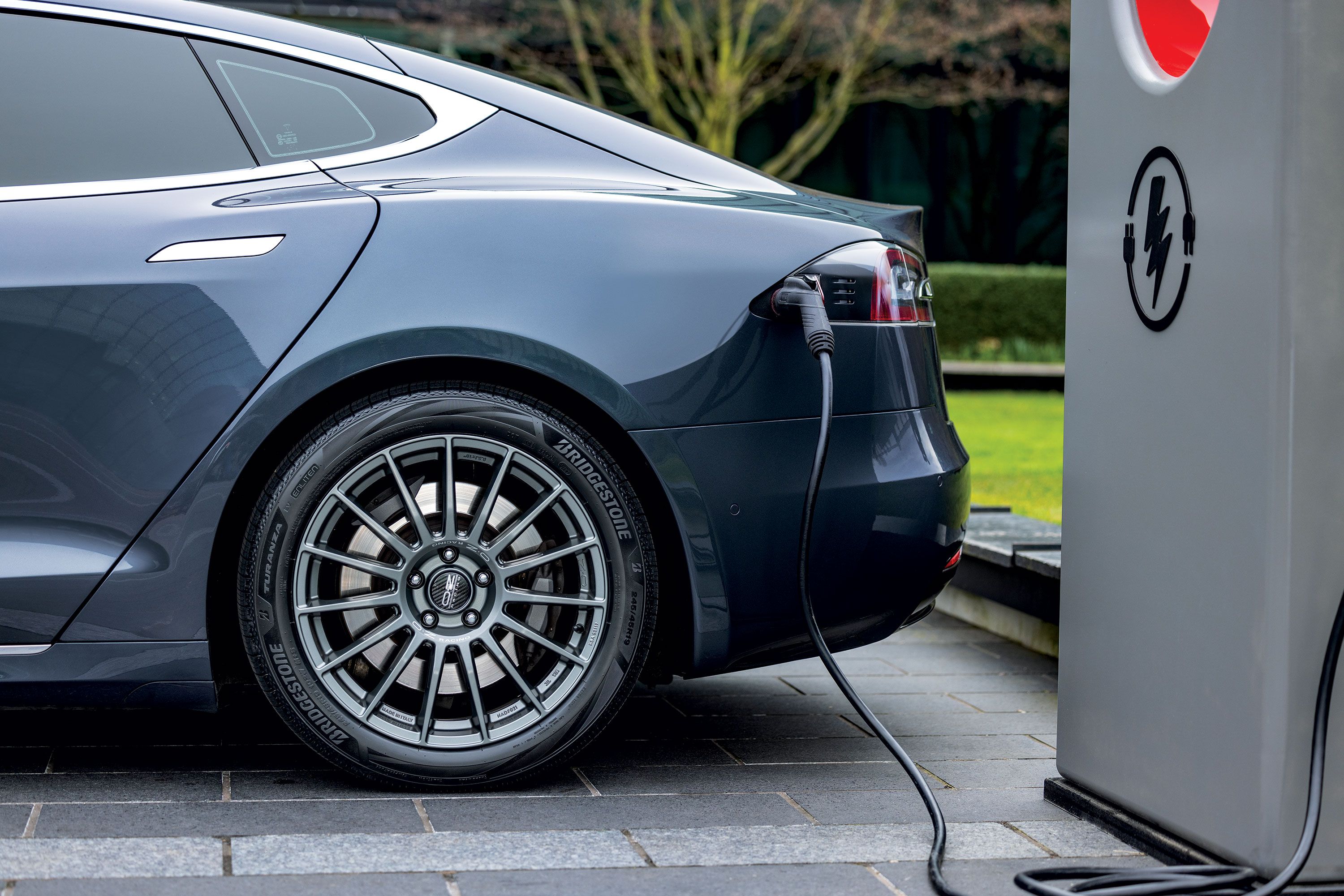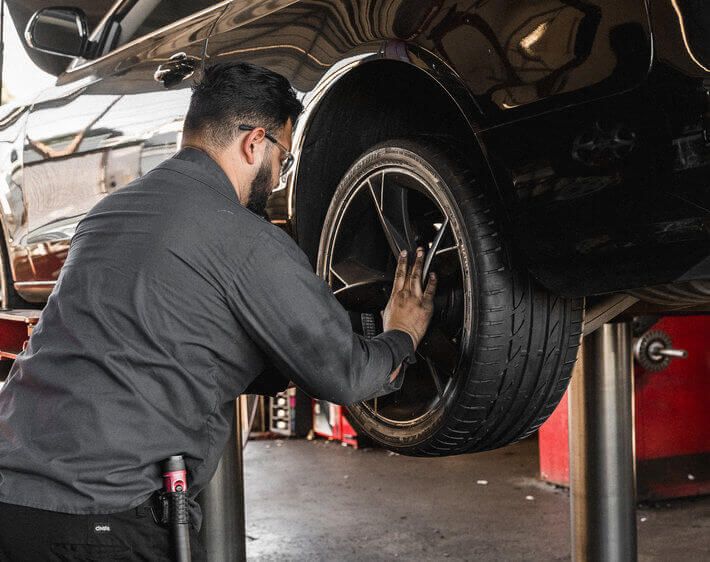“What is a good all-season tire?” "“Should I even get all-season tires?” — You have questions, and we have answers. Read on to find out what all-season tires are for, how they compare to other types of tires, and whether they're the right choice for your vehicle.
What Does “All-Season Tires” Mean?
As their name suggests, all-season tires are designed to provide reliable performance in various weather conditions throughout the year — including dry, wet, and light winter situations. They combine features from both summer and winter tires in order to provide a balance of traction, handling, and durability throughout a wide range of temperatures and road conditions.
Specialized features like tread design, rubber compound, and siping play into the versatility of all-season tires:
Tread Design: All season tires typically have a tread pattern that includes both large tread blocks for dry traction and smaller grooves for wet traction. This design helps to channel water away from the tire’s contact patch and reduce the risk of hydroplaning on wet roads.
Rubber Compound: The rubber tread compound used in all-season tires is formulated to provide a balance of grip and durability across a wide temperature range. The best all-season tires have a compound that remains soft enough in cold temperatures to provide adequate traction, but firm enough in warm temperatures to remain durable.
Siping: Like winter tires, all-season tires often feature small slits called sipes in their tread blocks. Sipes provide additional biting edges that enhance traction on wet and mildly snowy surfaces.
Pros and Cons of All-Season Tires
With features like those listed above, all-season tires seem like they could satisfy Goldilocks herself, right? Unfortunately, this isn't always the case. All-season tires are suitable for most regions with mild to moderate climates. But if you frequently encounter severe summer or winter conditions, you may want to consider another option. Here are the advantages and disadvantages of all-season tires.
Disadvantages of All-Season Tires
You’re probably familiar with the expression, “a jack of all trades is a master of none,” — a phrase that aptly describes the primary drawback of all-season tires. For all-season tires to attain serious versatility, compromises have to be made on the more extreme ends of the temperature spectrum.
This is because winter and summer tires necessitate different rubber compounds and tread designs. Whereas winter tires require soft rubber compounds and deep tread voids to capture snow, summer tires utilize firmer compounds and large tread blocks for enhanced dry traction.
Though all-season tires strike a good balance between the two by blending these features together, they can only do so much. In temperatures below 45° F, their rubber compound can stiffen up, resulting in decreased traction and handling — something you definitely don’t want on extremely snowy or icy roads. Similarly, the rubber compounds of all-season tires may not provide the same level of grip and responsiveness as dedicated summer tires in high-temperatures.
Advantages of All-Season Tires
That’s not to say that all-season tires are a poor choice, however. The complete phrase from earlier is a more accurate analogy — “A jack of all trades is a master of none, but oftentimes better than a master of one.”
So, what are all-season tires good for? Though they may not be the best option in extreme conditions, all-season tires are incredibly convenient and adaptable. They can save you the time and effort of storing and switching between seasonal tires, while still offering exceptional durability and adequate traction in a wide scope of weather conditions.
If you live in a region that doesn’t generally dip below 45° F, all-season tires are a fantastic way to be prepared for most anything mother nature throws your way.
What’s a Good Tire for All Seasons?
If you’re looking for a set of all-season tires that stand above the rest, Bridgestone WeatherPeak all-weather tires are a quality choice. Compared to traditional all year round tires, Bridgestone WeatherPeak tires boast improved wet and winter performance without sacrificing durability or comfort. With full depth siping, snow vices, and open shoulder slots, you can drive with confidence even when road conditions are less than ideal.
Don’t Need an All-Season Tire?
If your area experiences harsh winters, stay safe with a set of Bridgestone Blizzak tires. Engineered with state-of-the-art Nanopro-Tech & RC Polymer, aggressive siping, and optimized tread width, Bridgestone Blizzak tires deliver exceptional grip on cold, wet, and icy surfaces.
Once winter is over, swap to a tire that can accommodate some spirited summer driving. Perfect for those who seek superior performance, the Firestone Firehawk Indy 500 is the ultimate summer tire. These sporty options offer incredible cornering, braking, and water evacuation at an affordable price.
Still Not Sure What Tire to Choose? Firestone Complete Auto Care Can Help
Are you ready to find the perfect tire for your ride? Take the wheel and consult the tire professionals at your local Firestone Complete Auto Care. Not only will we take your specific needs and driving conditions into consideration when helping you choose the best option for your ride, but we'll also install and align your new tires too! Schedule a tire appointment today to ensure smooth rides all year long.



